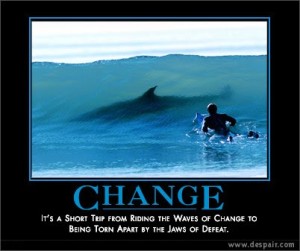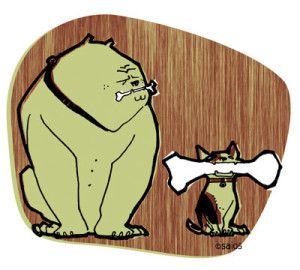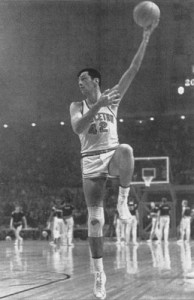Category Archives: the writing life
Envy
Write what you love not what the market does

Blown Calls
UPDATE: I changed the title of the post because it started sounding a little more negative than I liked. You purists can still find it in the URL.
Maybe you heard about the terrible blown call in baseball last week. Pitcher Armando Galarraga of the Detroit Tigers was on the verge of doing what only twenty other pitchers in Major League history have accomplished: pitch a perfect game (a no-hitter wherein no opposing player even reaches first base).
It was two outs in the 9th inning. Only one player left to go. But then the Cleveland Indians’ Jason Donald hit a grounder to the first base side. Galarraga ran over to cover. He caught the throw and stepped on the bag a split second before Donald’s foot.
In other words, Donald was out. Only he wasn’t.
He wasn’t because a veteran umpire, Jim Joyce, blew the call. He was in position to call it correctly, and did not. Because there is no instant replay review in MLB, the call stands. No perfect game. Not even a no-hitter. (For you trivia buffs, there have also been ten occasions where a perfect game was lost on the very last out.)
To their everlasting credit, all parties concerned handled things with class. Umpire Joyce manned up and owned it. He wept at his mistake. The Detroit fans showed class, too, by giving the highly regarded Joyce a standing ovation when he came out to umpire the next game.
And Galarraga and the Tigers did not do what 90% of other players and teams would. They did not overturn water coolers, or moan and complain.
Nor should they have. This is the reality of baseball. Human error by umpires is part of the game. You accept that going in. You know it’s going to happen. You want to change the rules and bring in replay, fine. But as it stands, blown calls are as much a part of baseball as peanuts and beer.
It’s like the publishing business, and life. Bad stuff happens to good people, and good manuscripts.
You get turned down by an agent in summary fashion. Your submission gets kicked at a publishing house for some reason other than the writing itself. You see someone else – maybe even a friend – score a great contract or get on the bestseller list. And it hacks you off, because you know you can write just as well, or better.
Life hands you blown calls. So what do you do about it?
When my son was first pitching Little League, he had a tendency to let a bad play or a home run upset him. So early on I made this rule for him. “You are allowed one ‘Dang it!’ And you can hit your glove as hard as you want. But that’s it. Then you go back to pitching to the next guy.”
That’s what he learned to do, and in fact won a championship game that way.
So you get that rejection, or see that unfairness. You can have one ‘Dang it!’ (or its adult equivalent). I’ll let you feel it for fifteen minutes. But that’s it. Don’t hang onto it. Don’t go moaning all over the Internet. Don’t yell at your spouse or kick your dog.
Instead, turn that energy into action – by writing.
Here’s what I love about being a writer. Every day is new. Every day I get to wake up and pound those keys and keep going. It doesn’t matter to me if I get a setback, a bad review, a rejection. I can keep punching, and I will keep punching until groundhog delivers my mail.
How about you? How do you handle blown calls?
Energy to Write
First, a reminder that for the month of March my publisher is making my first Buchanan thriller, Try Dying, available for e-readers for just $1.99. With additional content, too, including various location photos I took when doing the research.
Here’s the Kindle link.
It’s also for Sony Readers, B & N and Kobo.
We now return you to your regularly scheduled blog, which answers this question: How do you increase your energy to write?
We are biological machines, and need energy input lest the law of entropy reduce us to non-functioning blobs of carbon and water.
This is especially true for writers, who not only have to produce but have to have minds that provide fresh ideas and wonderful characters and sharp dialogue.
So here are some of the things I do to get going. I’d like to hear your ideas in the comments section.
Like millions of writers before me, I start the day with freshly brewed coffee. I make it at home or sometimes go off to Starbucks with my laptop and imbibe there. There is as much to the comfort factor as there is to the buzz, I think. I just like having something warm to drink as I write.
I’ve been gratified by all the recent science showing the health benefits of a few cups of coffee. A few. I don’t overdo it. I remember that Balzac thought of thick, black coffee as something of a magic drug. The guy was a speed freak without knowing it. He drank up to 50 cups of the stuff a day. And died from it, at age 51.
What would he have done with Red Bull? I shudder to think.
Exercise. I shoot baskets and run around at a local park, talk long walks, treadmill, ride my bike. Keeping the body honed – which is, thankfully, a relative term (you hear me, David Beckham?) – is essential for the right working of the mind.
An added benefit of the workouts is that the “boys in the basement” ramp up their efforts, especially if I’ve spent previous hours investing heavily in a project. The BITB is Stephen King’s great metaphor for the writer’s subconscious. It pays to keep them happy so they don’t go on strike.
I’m a morning person, so like to get as much writing done early as I can. I try to do a “furious 500” words as soon as possible. Some of that will be sort of “improvising” within my scene. The faster the better here. Oh, and if you need some prodding in that regard, you can visit the ever effective Dr. Wicked.
At about 1 p.m. I tend to power down for a couple of hours—meaning I’m not at my creative best. Around 1:30 or 2 I usually take a power nap. I can put my feet up on my desk and nod off for 15 – 20 minutes, wake up refreshed.
I’ve recently tried something that has supercharged these mini-slumbers. Just before I close my eyes, I take a swig of a 5 Hour Energy drink. Not the whole thing. About a third. Then I sleep, and when I wake up I’ve got this jolt of creative energy that seems to continue without a “crash.”
I’ve learned there is something medically valid to this. It takes 15-20 minutes for caffeine to kick in, so the timing is right for this type of power nap. You get both the benefit of sleep and energy infusion.
I don’t do this every day. I don’t want to get dependent. But if I need to be working heavy on a project in the afternoon, I’ll give it a go.
Sometimes I write standing up, as I’m doing now on my AlphaSmart Neo, on a counter in my house. There’s some added energy when you write standing up. I don’t know why that is, but I don’t need to know, do I?
One last thing. I try to leave off my previous day’s writing at a mid-point of some kind, so I’m ready to fly right back into it. Hemingway used to write half a sentence before knocking off. I first read what I wrote yesterday, clean it up, then I’m ready to dive into the day’s work.
So what about you? What do you do to keep up your energy to write? (Please confine yourself to legal substances)
A Sense of Where You Are
I’ve been playing basketball most of my life. When I was a kid, falling in love with the game, I happened across a book called A Sense of Where You Are by John McPhee. It was a profile of Bill Bradley when he was one of the best college hoopsters ever, nearly leading lowly Princeton to the national title.
What impressed me was Bradley’s work ethic. He practiced for hours a day, in all sorts of weather, perfecting his shots, his moves. He even spent considerable time on the classic hook shot, in order to have a complete game.
So the summer between seventh and eighth grade I had my dad put up a basket on our driveway. I practiced every day, sometimes in the rain, sometimes into the night with the driveway lit up by a single floodlight.
I got books on basketball technique from the library and taught myself the proper way to shoot a jump shot. I learned you have to keep your elbow in, not flared out. I learned to give the ball a perfect spin. In fact, I became the deadliest shot in the history of Parkman Junior High School. In further fact, I was All League in high school and played a year in college. In furthest fact, had I been a couple inches taller and about five seconds faster, I’d be in the Basketball Hall of Fame.
Larry Bird? Pheh.
But I digress.
The other morning, as is my wont, I was shooting around a local park when I got into doing some hook shots. Now that’s one shot I worked on a little bit when I was younger, but never really developed into something deadly. My specialty was the 15 – 20 foot jumper, and that’s what I practiced most.
But this day, for some reason, it occurred to me that as I had taught myself the proper way to shoot a jump shot, maybe I ought to take another look at the hook. So I started to experiment with a different release point, looking for another feel. And in about five minutes I happened on a slightly modified shot, but that modification made a huge difference. The hooks started to fall.
I felt like a kid again, with the joy of discovering a new technique that works. After all these years, I had a stronger hook shot with only a few adjustments.
I bring this up because I get this feeling as a writer, too. I still get excited when I put a new spin on a technique and it works. That’s why I continue to read books on writing, Writer’s Digest magazine, blogs and lots and lots of novels, seeing what works, trying stuff out. My philosophy is if I learn just one thing, or get a new view on something I already know, it’s worth it.
Don’t ever think you have arrived. When you think that, even if you’re multi-published, you start to atrophy. There are authors who once cared about the craft but now just mail it in, because they have an established following.
Don’t let that be you. Respect the craft, and keep at it.
In his book, McPhee described Bill Bradley’s ability to throw up a shot with his back to the basket – no look – and make it most of the time. When he asked Bradley how he could do that, Bradley replied, “You develop a sense of where you are.”
Know where you are, writer, and how you can get better. Then practice. That’s really the secret to succeeding as a writer. Maybe the only secret: practice –– day after week after year.
What about you? Do you have the same excitement when you learn something about writing that works? Do you practice enough? Even when it rains?
Do Not Go Gentle Onto That Good Page
Do not go gentle into that good night . . .Rage, rage against the dying of the light. – Dylan Thomas
Brett Favre, one of the best quarterbacks ever to play the game of football, was supposed to be over-the-hill at 40. But he recently finished what is probably his finest season and almost got the Minnesota Vikings to the Super Bowl. In the NFC championship game against the New Orleans Saints, he took a beating. He was on the turf constantly, sometimes under 380 pounds of beef. In the second half he got his left ankle twisted, limped off, got re-taped, and came back into the game. But for a number of turnovers by his teammates and one ill-timed interception, the Vikes would have won. It was an inspiring performance, adding to his legend.
Robert B. Parker, creator of Spenser and one of the most prolific authors of our time, died last month at the age of 77. He was supposed to be over-the-hill, too. Some critics thought he was, but most readers did not. Parker was turning out books to the very end, and not just in his Spenser series. He had other series going, including Jesse Stone, which Tom Selleck has brought to TV. He also wrote stand alones and Westerns.
He was reportedly about 40 pages into a new Spenser novel when he died at his desk of a heart attack.
For a writer, baby, that’s the way to go. I only hope I’ve just typed the last page.
Regardless, Favre and Parker are two guys who refused to go gentle into that good night. To write well, there has to be a part of you that is determined to rage, rage against the dying of the light––and against rejection, criticism and the slough of despond.
You’ve got to have some attitude.
Now, this attitude is not the same as arrogance. Arrogance shouts and gets tiresome pretty fast. Attitude is just as ornery, but it’s quiet. It does its work and keeps on doing it. It wants to prove itself on the page, not in the mouth. And it refuses to give up.
A knock on Parker in the latter phase of his career was that he wrote too much, sacrificing quality. Well, that’s between him and his readers. He wrote, they bought, they enjoyed, maybe some got frustrated. But the relationship was lasting, and the man was doing what he loved.
If you love to write, you’ll find a way to do it. No one can promise how that’ll turn out. No one can guarantee you a publishing contract. But you’ll never get close if you don’t rage a little, and turn that into determination to keep writing, keep going, keep producing the words.
My grandfather and my mom both wanted to be writers. So they wrote. My grandfather wrote historical fiction and ended up self-publishing some of it. It’s really not bad at all, but it’s very niche stuff. Yet I remember him being proud of it, and it pleased the family.
My mom wrote radio scripts while she was in college in WWII. I have a whole bunch of them. Quite good. She worked on a small local newspaper when I was a kid. I remember, when I was twelve or so, finding a short story she wrote, a sci-fi kind of thing, that had a cool twist ending. She never got it published but it influenced at least one young writer––me.
So do not go gentle onto that good page. At the very least you’ll know you’re alive, and you won’t walk around (as Murray says in A Thousand Clowns) with that wide-eyed look some people put on their faces so no one will know their head’s asleep.
Rage a little, throw the heat, write.
How do you actually feel when you’re writing? What’s going on in your head? And how long do you expect to be writing?
What the New Kindle Deal Means for Writers
You’ve no doubt read up on amazon.com’s bold play this week to shore up its Kindle market share (estimated already to be 90% of all e-readers). They announced a new program, taking effect June 30, which offers a 70% royalty on Kindle editions priced between $2.99 and $8.99. That’s double what they have granted before (and was timed to come just before Apple’s announcement of a similar plan for their new iTablet. For more on the coming “price wars,” see this article in Fortune).
This represents quite a nice chunk of the pie, even though the price point is low. For authors, it works out to be a very good deal, when 10% of list is not an uncommon number, especially in mass market.
Which is the point I want to make, one I have been pondering ever since the Kindle broke out wide: we authors may be entering an era that is very much like the mass market explosion post World War II.
What that ushered in was a golden age of paperback fiction in the 50’s. Names like Mickey Spillane, John D. MacDonald, Ross Macdonald, Jim Thompson. Some of the old pulp writers, like Erle Stanley Gardner, found new life and sales. While the old pulp magazines dried up, there was a market for good stories among the slicks—e.g., Collier’s, Saturday Evening Post. The better writers got stories published there and made some extra scratch.
So what do we see now? Another mass market platform, this time electronic. The price points are equivalent to what people in the 50’s would have paid in the drug store. True, publishers could actually get into the drugstores, on racks and spinners. But we have that analogue in the e-world. Buyers on amazon, for example, are directed to other titles they might be interested in, and so forth.
For authors, especially commercial authors—those who deliver an entertaining read—the prospects are intriguing. If they write great stories, word of mouth will spread, just like it does in traditional publishing. But now there’s a 70% royalty, which is a whole lot better than the pittance the paperback writers of the 50’s got.
But there’s more good news, especially for writers like myself who have a ton of stories and concepts we’d like to write. We will be able to write different varieties of fiction––short form, novella and novel length, and see them brought to market in a fraction of the time it now takes to get one book out the traditional way.
I can see nice prospects for publishers and writers teaming up to take advantage of this new platform, even if it’s just to supplement the traditional print model.
The short story especially interests me. I love doing them, but the short story market has long been a dead letter. Suddenly, there’s new life. In fact, my colleagues and I here at Kill Zone are going to soon release our own anthology: Fresh Kills. It’s been a matter of only a few months, from idea generation to writing to editing to e-publishing. And we don’t have to print or warehouse the book.
Now, the temptation, especially for new writers who are thinking in terms of self-publishing, is to start throwing up (and I use that term purposely) their stuff before it’s ready. We’re going to see a lot of that. But a kind of Darwinism will take over, where the weak will be weeded out. The idea is to become one of the fittest and survive, even thrive. I would therefore advise new writers to hire a good freelance editor. You will only hurt your long term prospects if what you offer is junk.
How are traditional publishers going to react to all this? I don’t know. Random House has entered an agreement with Apple, and that will change the landscape. The landscape will keep changing. We’re in a whole new ballgame here, and the rules get updated almost daily. But as I said, I think there is a great chance for publishers and authors to partner up and make the best of this situation. I don’t know that we’re ever going to go back to hardcover prices. The production costs are too great, and consumers are rapidly being taught they don’t have to pay hardcover prices, even for a new book by a celebrity author.
What that means for you, writer, is to keep concentrating on doing what you do, making your stuff the best it can be, then going to market. If you can write short stories (which are, in my mind, the hardest form of fiction), so much the better. Bottom line: if your stuff is killer, people will find it. If you write it, they will come.
The Midnight Hour
Embracing Change

 on trying to adapt as best I can. I shall shift my position in the stagecoach and see how it feels:)
on trying to adapt as best I can. I shall shift my position in the stagecoach and see how it feels:) 







